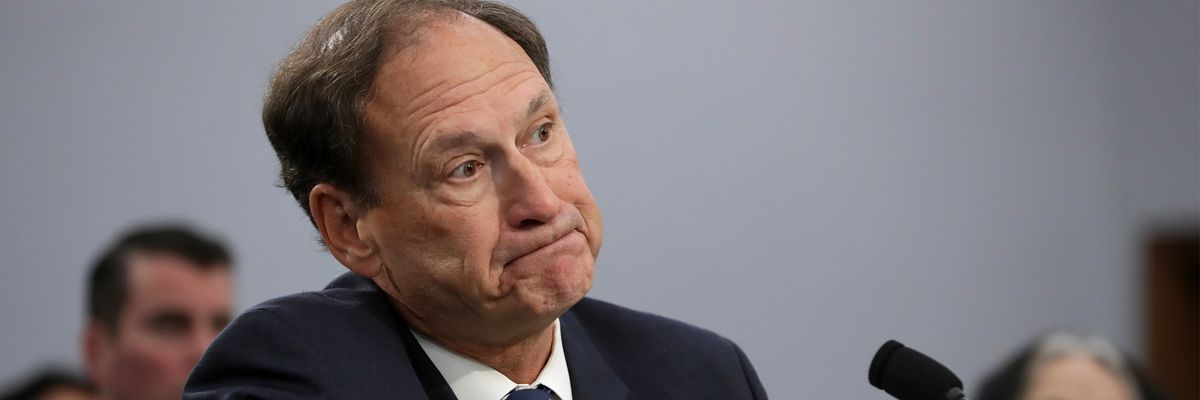As public trust in the Supreme Court drops to a new low, Justices Samuel Alito and Clarence Thomas are pushing back against a firestorm of ethics controversies involving payoffs to them by wealthy Republicans.
When Thomas’s annual financial disclosure was released Thursday — revealing another three private jet trips he accepted last year from real estate magnate and GOP megadonor Harlan Crow and amending several “mistakes” from previous years — Thomas’s personal attorney circulated a six-page statement tearing into “left wing” groups that he said had “weaponized” ethics against Thomas.
“No Justice, Justice Thomas included, should be subjected to such political blood sport,” Thomas’s attorney wrote. “It is painfully obvious that these attacks are motivated by hatred for his judicial philosophy, not by any real belief in any ethical lapses.”
Alito, meanwhile, gave an interview to The Wall Street Journal’s conservative-leaning opinion section, calling recent stories about him “nonsense” and lashing out against the Supreme Court Ethics, Recusal, and Transparency Act, which the Senate Judiciary Committee advanced just one week earlier. (It would require that Supreme Court justices comply with ethical standards as demanding as in other branches of government.)
Alito asserted that “no provision of the Constitution gives [Congress] the authority to regulate the Supreme Court — period.”
Ironically, since the constitutionality of that act could eventually come before the court, Alito’s comment about it is itself a breach of judicial ethics.
Meanwhile, his assertion that Congress may not subject the Supreme Court justices to a code of ethics is being used by Republicans to block an inquiry into undisclosed gifts to Alito — another ethical breach, since Alito’s views are impeding a congressional investigation into Alito’s own conduct.
So here's a pair of key questions that must be answered: Should Thomas, Alito, and other justices be subject to binding and enforceable ethics rules? And, if so, how?

